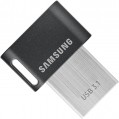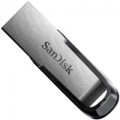Memory size
Total storage capacity. The larger it is, the more information can be simultaneously written to a USB flash drive. For comparison: the size of text documents rarely exceeds 1 MB, audio files and photos usually take several megabytes, short videos — several tens of megabytes, and a DVD-quality movie has a volume ranging from one and a half gigabytes and more. On the other hand, the price of the drive directly depends on this indicator. Thus, many manufacturers have flash drives similar in basic characteristics, differing only in volume — this makes it easier to choose the option that is optimal in terms of price and capacity.
Now on the market there are flash drives with the following volume:
4 GB,
8 GB,
16 GB,
32 GB,
64 GB,
128 GB,
256 GB,
512 GB and more.
Read speed
The maximum speed of reading data from the drive. The
higher this speed, the faster you can rewrite information from a flash drive to a computer disk, which is especially important when working with large amounts of data. In fact, the reading speed depends on a number of factors, including the interface bandwidth (see Connection interface), the design features of the drive and computer, the software used, system load, etc.
Waterproof
The presence
of water protection flash drive. Also in this paragraph, the specific level of such protection according to the IP standard can be specified, where the first digit is responsible for dust protection, and the second for water protection. The higher the number, the better the level of protection. So, the water protection indicator of 7 already allows us to talk about the short-term water resistance of the model. However, in most cases, manufacturers do not conduct global tests and do not mark their devices with an IP level, only assuring about some kind of protection. What it really is remains a mystery.

